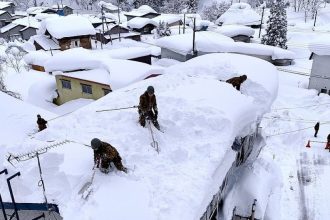In light of the International Monetary Fund’s (IMF) urging for retrospective adjustments in gas prices to manage the escalating circular debt, the interim government is set to implement a series of immediate and long-term measures. These encompass enhancing cash assistance under the Benazir Income Support Programme (BISP) for urban beneficiaries and earmarking funds for winter gas supply in Balochistan. Simultaneously, efforts are underway to restructure the inter-corporate financial dynamics among energy firms.
Furthermore, significant long-term transformations are anticipated, such as splitting the transmission networks from the current Sui gas companies and exploring avenues to augment oil and gas production. These reforms aim at shifting towards a balanced cost approach for locally sourced and imported LNG, thereby potentially stabilizing the energy sector’s financial health.
Balancing Price Hikes and Protecting Vulnerable Consumers
Central to the government’s challenge is safeguarding urban low-income households from the impending gas price surge, given their reliance on comparatively cheaper gas than their rural counterparts who bear substantial costs for alternate fuels like LPG. Special attention is being accorded to Balochistan, where a reliable gas supply is vital during the harsh winter months, and a Rs10 billion subsidy is envisioned to shield the impoverished populace there.
Plans are also in the pipeline to increase BISP cash payments, aiding the urban poor in coping with the projected 45-50% hike in gas prices, as determined by the Oil & Gas Regulatory Authority (Ogra). A senior government official emphasized constructing safety nets for these vulnerable groups, hinting at developing a distinctive tariff for low-income consumers in Balochistan. Meanwhile, stakeholders are slated to reconvene soon to finalize the gas price adjustment blueprint for the Economic Coordination Committee’s (ECC) review and the federal cabinet’s subsequent approval.
Against this backdrop, the Interim Minister for Power and Petroleum revealed a spike in the gas sector’s circular debt, urging for an urgent rectification before the winter season’s heightened consumption begins. Moreover, the IMF has conditioned its approval on facilitating unprotected electricity users to settle their augmented bills through extended instalment plans. As the government gears up to address these pressing concerns, a substantial focus is on leveraging technology to optimize gas production from declining fields and non-operational wells.






